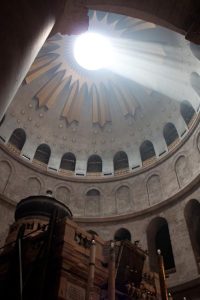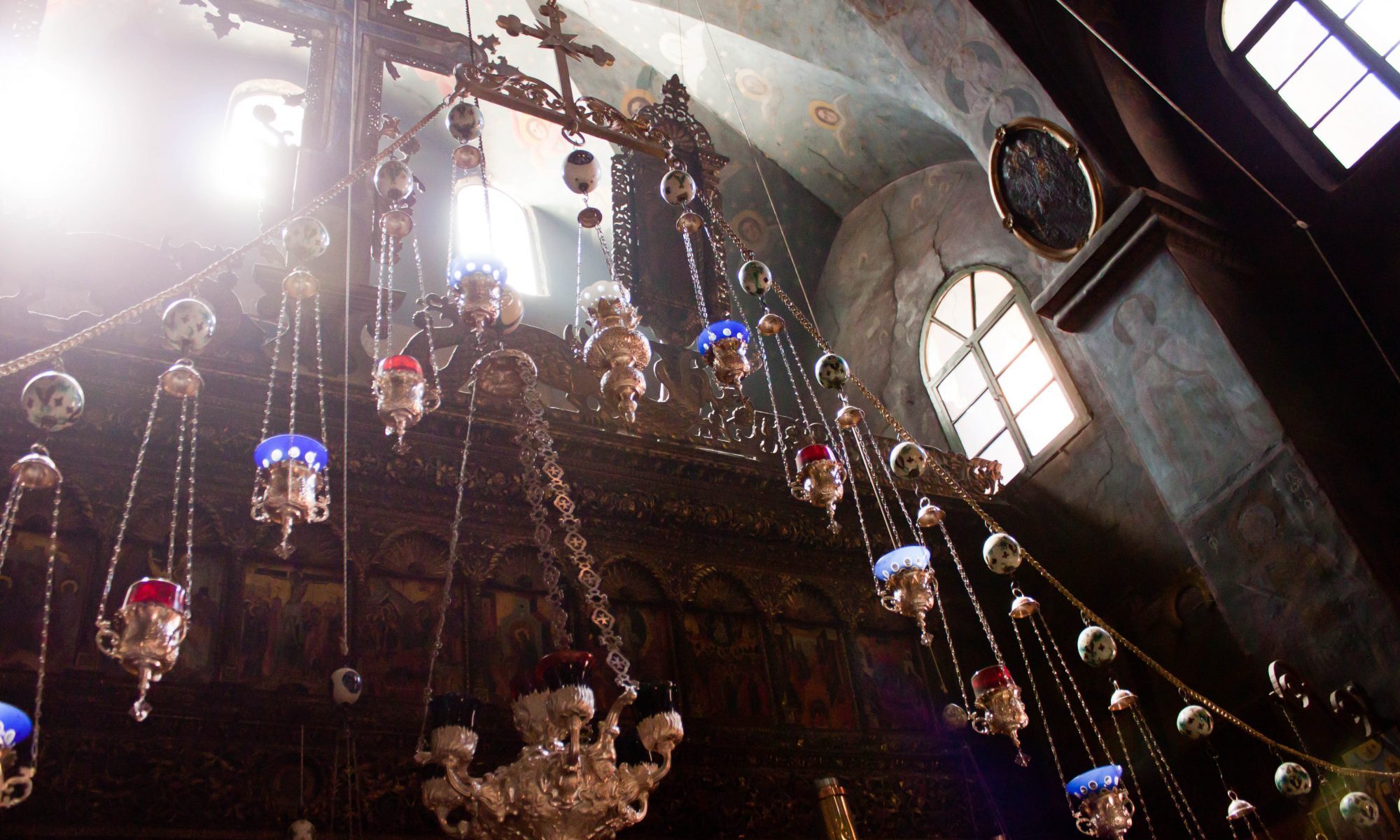A few weeks ago I was visiting Jerusalem. As in my previous two visits, this one was for a meeting, rather than with the express purpose of pilgrimage. But of course I visited many places of great significance: the Mount of Olives, the Garden of Gethsemane, the Tomb of the Virgin Mary (Theotokos), and of course the way of the cross, and the Church of the Holy Sepulcher, where Jesus was lain and from where he rose.
People will experience such visits in different ways. Evidently they do: some are weeping, some are taking selfies while flashing peace signs. My experience, especially at my first visit, was of an acute rift, between the way I thought I ought to feel and how I actually felt. Here I am at the tomb of Christ. Shouldn’t I be utterly struck down off my feet by the holiness? The tragedy of the crucifixion and the grace of God’s mercy? The glorious Resurrection? 
Here’s a photo I took, of the blinding light shining from above, at the Holy Sepulcher. Why wasn’t this happening in my own heart? I’m just standing here. Am I callous?
Well, surely I am callous – there is so much that I don’t perceive about God, myself, and the world, and that is something to work on for my whole life. But guess what: thinking of how I ought to feel is nearly always a complete waste of time. It’s a misuse of mental and spiritual energy. It is a distraction from the here-and-now, which is where I really ought to be.
I posted earlier about presenting my true self before God – maybe this is an extension of that goal. Be who you are, where you are. “Mindfulness” means being consciously in the present – that’s very different from “having feelings,” or thinking about those you “should be having.”
As for visits to holy places—they’re an interesting test case of all of this, because we’re liable to build up unreasonable expectations of their effect on us. We can’t know what that effect will be, neither can we predict when it will come, if ever. It might be a good bit of time after (or before) the event itself. It may take place with or through other people.
In my case, for this particular visit, I found that one way to get out of my own head was to experience the communality of my visit. I thought of all the people around me. I watched—as free from judgment or evaluation as possible—others as they approached Gethsemane, Mary’s Tomb, Christ’s Tomb. And I prayed—free of any emotion—for and with them. Then there are all the people who have been and will be visiting. These places are “sanctified” not only by what happened there 2,000 years ago but by the nearly incessant stream of people who have been coming to them ever since, with reverence. These are what the Russians would call “enprayed (намоленные)” places. That’s something right there: joining this perpetual current of Godward energy.
Finally, I guess there is one place among all of them in Jerusalem that does pretty consistently move me. No point in telling you what it is, because your experience will be your own, if you ever get there. A lot of people just pass by it on the way to something “bigger.” But that place gets to me.
When I told my mother, the 91-year-old Vera Bouteneff, about my experience of Jerusalem this time around, I was amazed by what she told me. When she went to that city, some fifty years ago, she too had a terrible feeling that she should be more moved than she was. We talked about all that. And then she told me that there is this one place that moved her and my father in a way more than the others. And it was the very same place that tugs my own heart.

